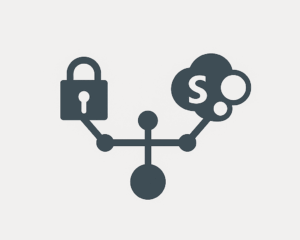

Let’s start with numbers. About 15% of the US population is involved in startups. Around 61% of all startups globally offer B2B solutions. At the same time, rough statistics state that 90% of all startups fail.
This highlights the need for a solution that could help a startup thrive and grow. And a dedicated virtual data room for startups can be such a solution.
What is a data room for investors and startups? What benefits does it bring to both sides? How to choose one? These and other questions are answered in this article. Keep reading!
What is a data room for startups?
A virtual data room for startups, or an investor data room, is a secure online repository for sharing and storing confidential documents and other sensitive data. Such virtual data room solutions offer not only the advanced data security a startup owner needs but also a variety of dedicated features aimed to facilitate the fundraising process.
Research by CB Insights shows that 38% of startups fail because they run out of cash or need more proper investment. This only highlights the importance of timely capital raising and the use of an investment data room to accelerate those processes.
An organized data room for investors helps early-stage companies convert potential investors into actual ones in many ways. It helps to:
- Streamline the fundraising process to facilitate decision-making
- Organize company documents for better transparency and an improved due diligence process
- Protect sensitive data and confidential information with advanced security features
- Identify the lead investor and most engaged parties with real-time reporting
- Speed up the due diligence process with ready-made checklists
Best data rooms for startups
Not all data rooms are created equal, and some will offer unique benefits for startups: a mix of the right collaboration features, 1st-rate security, affordability, and the potential for scaling.
The below investor data room list shows you some of the top virtual data room solutions for startups.
Important features of a virtual data room for startups
Certain features are key for a startup virtual data room. Among the elements to look out for, the following are some of the most important.
| Collaboration features | Q&A section Secure internal messaging Notes |
| Security features | Watermarking In-built redaction Compliance and certifications |
| Access controls and permissions | Granular access permissions User activity tracking IP restriction |
| Branding | Personalization tools Terms of access customization Email invitations customization |
| Ease of use | Mobile user interface Multilingual interface Drag-n-drop and bulk upload |
Now let’s take a look at those features in more detail
Collaboration features
Collaboration features ensure effective communication between all parties involved in the capital-raising process, which significantly facilitates potential investment. Below are the top features to look for.
Q&A section
A good virtual data room should offer the ability to ask questions about its contents, recent developments, or specific questions of interest. Advanced data rooms offer ready-made Q&A workflows, allowing you to assign certain questions to experts, who are responsible for timely answering all questions.
Secure internal messaging
Speaking of security, secure messaging is another essential way to protect your sensitive data. Data room certifications such as ISO 27001 and SOC-2 tell you your investor data room is a safe space for team and investor communication.
Notes
This feature allows users to add personal or shared annotations to documents. It significantly enhances collaboration by allowing everyone involved in the capital raising process to highlight important information and share insights directly on documents. What’s more, this way investors can leave their consideration on the specific documents so that a startup owner can address the issue.
Security features
From reliable data encryption to granular access rights, and various options for restricted file access or view. There’s a wide range of security features data rooms can offer to safeguard sensitive information. Taking advantage of such features helps to guarantee that you don’t become the victim of a data breach. We recommend looking for the following features in a data room for startups.
Watermarking
This feature automatically adds watermarks to documents to indicate their status and protect against unauthorized distribution. It means that every file in a data room for a startup will have a watermark over it every time it’s downloaded or printed. A watermark typically contains such user details as time of download, IP, or name. This feature provides an additional layer of security by deterring data leaks and tracking document usage.
In-built redaction
With the help of in-built redaction, VDR admins can blacken out certain areas of the document or file so that they stay private and confidential. Such areas typically correspond to personally identifiable information, which is very sensitive to share with third parties. This feature helps maintain confidentiality by allowing only the necessary information to be visible to external parties.
Compliance and certifications
You should ensure that the VDR meets industry standards and regulatory requirements such as ISO 27001, GDPR, HIPAA, or SOC. Builds trust with investors and partners by demonstrating adherence to stringent security and compliance standards.
Access controls and permissions
Since startup virtual data rooms are designed to share lots of sensitive information with multiple parties it’s crucial to ensure only authorized users have access to it. Below are some of the VDR features that make that possible.
Granular access permissions
Another way of managing access, granular permissions, helps you limit file or folder access to certain individuals or groups. Files set to be viewed by one group only will not be accessible to persons outside of that group.
User activity tracking
A key feature for investor data rooms is being able to track user activity. By understanding what kinds of relevant documents investors are interacting with within their due diligence, as well as how often and for how long, you can gauge user engagement and interest and carry out a competitive analysis of potential investors.
This, in turn, allows you to single out the most interested prospective investors, allowing you to better focus your energy and resources on communicating and closing deals.
A data room for early-stage companies should show you things like:
- Which users log into your investor data room most often
- What documents they view or download
- How many times they’ve logged in or viewed a file
This audit trail helps energize your early-stage fundraising process. Some data rooms will even generate activity and engagement reports that give you an instant overview of user engagement.
IP restriction
This is a security feature that restricts access to the VDR based on specific IP addresses or IP address ranges.
It enhances security by ensuring that only users accessing the VDR from approved locations can gain entry. This helps prevent unauthorized access from unknown or potentially harmful IP addresses, thereby protecting sensitive information such as intellectual property from being accessed outside of trusted networks.
Customization and branding
For a startup or VC data room to stand out from the other startups that investors review, it has to be customized and branded. This is what virtual data rooms offer.
Personalization tools
As an aspiring startup, you’ll want to focus on creating an instantly recognizable look and feel. Branding is a key aspect of your marketing success, and carrying it through to your data room is a way to impress potential investors and show you’re dead serious — even in minor details.
The right data room will help you extend your brand to company documents, in the shape of automatic watermarks, as well as to the investor data room interface as a whole.
Terms of access customization
Another valuable feature in a virtual data room is the ability to customize users’ terms of access according to your company’s needs and specifications.
Email invitations customization
Once your data room is set up and you’re about to invite users — investors, buyers, and so on —, it’s a good idea to be able to personalize your invitation message. You can add your own tone or your startup’s greeting to it, making it more friendly or formal as the case may be.
Ease of use
A virtual data room for investors and startups should be not only a secure file-sharing server but also an easy-to-use platform for everyone regardless of their technical background. Below are some of the features that ensure an easy-to-use VDR experience.
Mobile user interface
You can meet a potential investor in a conference room or in the elevator, so you should always be ready. One of the advantages of using a virtual data room is that you can access all the information via your mobile device.
Mobile compatibility in investor data rooms is a key way to speed up work and communication; it’ll help you not miss any opportunities by always being able to respond, share, and interact while on the go.
Multilingual interface
Most data rooms offer one or two other languages apart from English; according to your investors’ needs and localization, though, it can be useful to choose a data room that provides interfaces in a greater variety of languages. Some data rooms also provide user support in several languages.
Drag-n-drop and bulk upload
This feature allows the easy upload of multiple files or folders by dragging and dropping them into the VDR. It significantly streamlines the document upload process, saving time and reducing administrative burden and thus, accelerating the potential investment.
Benefits of using a VDR for startups
Now, let’s take a look at how exactly virtual data room providers benefit startups in a capital-raising process. The main advantages include the following:
- Enhanced security. VDR security is what startups appreciate the most in a virtual data room solution. VDRs provide startup owners with secure data storage where they can share their confidential and sensitive data with potential investors. They offer such robust security features as high-level encryption, in-built redaction, secure access controls, and many more, ensuring that sensitive information is protected from unauthorized access. What’s more, a secure data room keeps detailed logs of who accessed what information and when, which enhances transparency and accountability.
- Efficient document management. VDRs allow startups to organize documents systematically, making data storage management and navigation much easier. They track changes and maintain version histories, reducing the risk of errors and ensuring that the most current information is available.
- Streamlined due diligence. Virtual data room software facilitates quicker due diligence by providing potential investors or buyers with immediate access to necessary documents. Interested parties can access documents from anywhere at any time, speeding up the review process, and thus, accelerating the decision-making and potential investment.
- Cost savings. Startups virtual data rooms also eliminate the need for physical data rooms, saving costs on printing, storage, and logistics. Stakeholders can review documents remotely, reducing the need for travel to a physical data room.
- Improved collaboration. Teams can collaborate more effectively with real-time document updates and shared access. VDRs allow administrators to set specific access levels for different users, ensuring that only authorized personnel can view or edit certain documents. What’s more, all the arising issues can be quickly and expertly solved via Q&A sections.
- Scalability. VDRs can scale with the growth of the startup, accommodating increasing amounts of data and more complex processes. They can be customized to fit the specific needs of the startup, whether it’s for fundraising, partnerships, or other strategic initiatives. What’s more, some secure virtual data room providers also enable multi-project management. With its help, startup owners can create a separate project (a set of documents) for each potential investor to review. This can significantly enhance the chances of the sooner capital raising.
- Trust. Using a secure file-sharing server such as VDR demonstrates that a startup is serious about security and organization, which can boost investor trust. A well-organized VDR reflects positively on the startup’s professionalism and operational maturity.
How to choose a suitable data room for startups?
The investor data room market is full of providers offering their secure location services at various price points. Although most companies provide similar basic features, there are variables, including the number of users, storage capacity, as well as many other aspects that affect the functionality and the final pricing.
Here are a few elements that can help you choose the best data room for startups:
- Choose a pricing structure. Decide which pricing plan best suits your company’s budget, ensuring you get the bang for your buck and don’t waste precious resources on features, storage, or user limits that you don’t yet need. We cover more on pricing below.
- Determine your main needs. How much storage your investor data room should have, user limits, security, collaboration, and messaging features — clearly understanding what your needs are will help you understand what data room, and what usage plan, to go for.
- Check out reviews for the best providers. After deciding on your budget and features, you will have shortlisted your possible options. The final step is to find a data room that fits your company best based on user reviews.
Factors that influence the pricing of data rooms for startups
Data rooms vary significantly not only in cost but also in the data room pricing options made available.
Storage space
Some data rooms will offer a tiered system based on storage; this allows you to pay only as much as is necessary for your current data hosting needs, while retaining the option to scale up if needed.
Typical per-storage plans start at 10 GB; more advanced plans can offer as much as 1 TB or even unlimited storage.
Number of users
Other virtual data rooms have pricing based on the number of users in your virtual data room. You pay for each new user added (typical data room pricing can range from $15 to $250 per user) or pay in user tiers — up to 5 users, up to 10 users, and so on.
Depending on the number of team members that need access to your VDR, or the number of outside users such as potential buyers or third-parties such as consultants or auditors, this may be one of the factors to consider.
Typically, per-user pricing is only a good idea if you’re planning to have very few users in your data room.
Monthly fee
The most common kind of investor data room pricing is a monthly subscription. This can also factor in the above criteria — you can choose between different subscription plans with a greater or smaller number of users and storage space, as well as access to more advanced features which are reserved for the top tiers.
Top-tier users will also typically benefit from priority in support tickets and other help desk advantages.
Per page pricing approach
This option is usually provided by the priciest VDR companies, where the cost will vary according to the size of your capital-raising campaign. Per-page pricing averages between $0.40 and $0.80. However, it’s not unheard of for virtual data rooms to charge as much as $1 per page.
Per-page pricing is a somewhat outdated model and is not usually a good idea for startups with big due diligence needs that are looking to scale, since the cost can easily get out of hand.
What documents to include in your startup data room?
The table below shows some of the documents that you might need to include in your startup virtual data room for investors to review. Take these as an example when creating your own checklist.
| Category | Documents |
| Corporate documents | Articles of incorporation and bylaws Cap table Stock certificates and option agreements Organizational chart |
| Financial documents | Historical financial statements Projections and budgets Tax returns Audit reports |
| Legal documents | Contracts and agreements IP documentation Litigation documents Compliance certificates |
| Employee information | Employee agreements Equity grants Employee handbook |
| Operational documents | Product documentation Sales and marketing materials Customer lists and contracts Supplier and vendor information |
| Technology and IT | IT infrastructure documentation Source code and repositories Security policies |
| Market and competitive analysis | Market research reports Competitive landscape |
| Other | Press releases and media coverage Strategic plans Investor communications |
Key takeaways
Let’s briefly summarize the main points from the article:
- A startup virtual data room (also called investor virtual data room or VC data room) is a secure online repository for sharing and storing large volumes of confidential data during the capital raising process.
- The fundraising process with VDR is significantly boosted thanks to such advantages as enhanced security, efficient document management, scalability, cost savings, improved collaboration, and streamlined due diligence.
- Some of the features a secure virtual data room for a startup needs to have include watermarking, granular access permissions, audit trails, restricted access, branding and customization opportunities, and many more.
| Top providers | Key features for startups |
| Ideals | 8 levels of granular user access permissions Built-in redaction Fence view for screenshot prevention Two-factor authentication In-app live chat support 24/7Q&A workflow |
| DealRoom | Drag-and-drop upload Granular access permissions Built-in Excel and document viewer Real-time insights on user behavior Two-factor authentication |
| Intralinks | AI redaction Detailed reporting “View As” Video support with Zoom integration M&A workflow |
| Merrill | Granular user and document permissions AI redaction Search in 16 languages Integrated Q&A Audit trail |
| FirmRoom | Auto-indexing 4 levels of permissions Document heatmaps Built-in smart redaction Advanced search |
References
- “Virtual Data Room for Startups.” Folderit. https://www.folderit.com/
- Mar 20, 2020. “Why Virtual Data Rooms Are Crucial to Startups.” StartupGuys. https://www.startupguys.net/
Recommended for you


